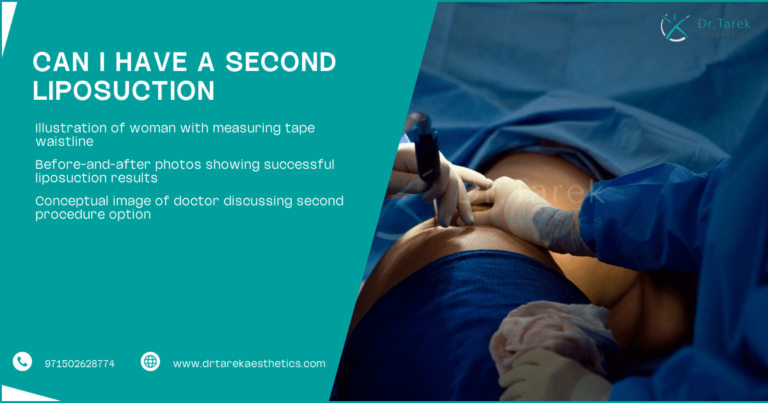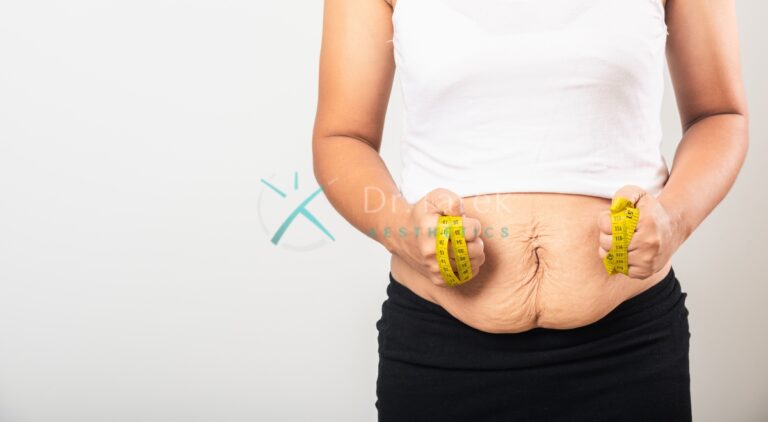Impact of Liposuction on Hormonal Balance
Liposuction, commonly referred to as lipo, is a popular cosmetic procedure that removes excess fat from specific areas of the body. While it is primarily sought for aesthetic reasons, many wonder about its potential effects on the menstrual cycle. Can lipo affect the menstrual cycle? This question is crucial for women considering the procedure, as hormonal balance plays a significant role in overall health and well-being.
Advanced Fat Removal uses special tools to take out extra fat from the body
it helps people get rid of stubborn fat that diet and exercise cannot remove
Connection Between Fat Tissue and Hormones
Fat tissue is not just a storage site for excess calories; it also plays a vital role in hormone production. Specifically, fat cells produce estrogen, a key hormone in regulating the menstrual cycle. According to a study published in the Journal of Clinical Endocrinology & Metabolism, fat tissue produces about 25% of circulating estrogen in premenopausal women.
- Fat tissue and estrogen production : Fat cells convert androgens into estrogen, contributing to the body’s overall hormone levels.
- Hormonal balance : The amount of fat tissue can influence the balance of estrogen and other hormones, potentially affecting menstrual regularity.
Potential Short-Term Effects on Menstruation
Some women may experience short-term changes in their menstrual cycle after undergoing liposuction . These changes are often temporary and can be attributed to the body’s response to the procedure.
- Immediate hormonal shifts : The sudden removal of fat tissue can lead to a temporary imbalance in hormone levels.
- Stress response : The physical stress of surgery can also impact the menstrual cycle, causing irregularities or missed periods.
Long-Term Implications for Menstrual Regularity
While short-term changes are common, the long-term effects of liposuction on menstrual regularity are less clear. Some women may find that their cycles return to normal after a few months, while others may experience ongoing irregularities.
Book A Consultation With Dr Tarek Bayazid
Top-rated Plastic Surgeon For Liposuction in Dubai
Installment Plan Available
- Hormonal adaptation : Over time, the body may adjust to the new hormone levels, restoring menstrual regularity.
- Persistent irregularities : In some cases, long-term hormonal imbalances may persist, requiring medical intervention.
Liposuction and Hormonal Changes
Liposuction can lead to various hormonal changes, both temporary and permanent. Understanding these changes is essential for women considering the procedure.
How Fat Removal Influences Estrogen Production
The removal of fat tissue through liposuction can directly impact estrogen production. Since fat cells contribute to estrogen levels, their reduction can lead to lower estrogen levels in the body.
- Reduced estrogen levels : The decrease in fat tissue can result in lower circulating estrogen, potentially affecting the menstrual cycle.
- Hormonal balance : The body may need time to adjust to the new hormone levels, leading to temporary menstrual irregularities.
Impact on Other Reproductive Hormones
In addition to estrogen, liposuction can affect other reproductive hormones, such as progesterone and androgens. These hormones play a crucial role in regulating the menstrual cycle and overall reproductive health.
- Progesterone levels : Changes in estrogen levels can influence progesterone production, potentially leading to menstrual irregularities.
- Androgen balance : The reduction in fat tissue can also impact androgen levels, affecting overall hormonal balance.
Temporary vs. Permanent Hormonal Shifts
The hormonal changes resulting from liposuction can be either temporary or permanent, depending on various factors.
- Temporary shifts : Many women experience temporary hormonal imbalances that resolve within a few months.
- Permanent changes : In some cases, the hormonal changes may be long-lasting, requiring ongoing management.
Menstrual Cycle Disruptions After Liposuction
Menstrual cycle disruptions are a common concern for women undergoing liposuction. Understanding the potential irregularities and their duration can help manage expectations.
Common Post-Procedure Irregularities
After liposuction, some women may experience common menstrual irregularities, such as missed periods, heavier or lighter bleeding, and changes in cycle length.
- Missed periods : The physical stress of surgery can lead to missed periods or delayed menstruation.
- Changes in bleeding : Some women may experience heavier or lighter bleeding than usual.
Duration of Menstrual Changes
The duration of menstrual changes after liposuction can vary from person to person. While some women may notice changes for only a few cycles, others may experience longer-lasting effects.
- Short-term changes : Many women find that their menstrual cycle returns to normal within a few months.
- Long-term effects : In some cases, menstrual irregularities may persist for an extended period, requiring medical attention.
When to Consult a Healthcare Professional
If menstrual irregularities persist or cause significant concern, it is essential to consult a healthcare professional. They can provide guidance and recommend appropriate interventions.
- Persistent irregularities : If menstrual changes continue for more than six months, seek medical advice.
- Severe symptoms : Consult a healthcare professional if experiencing severe pain, heavy bleeding, or other concerning symptoms.
Factors Influencing Menstrual Effects of Liposuction 
Several factors can influence the extent to which liposuction affects the menstrual cycle. Understanding these factors can help women make informed decisions about the procedure.
Amount of Fat Removed
The amount of fat removed during liposuction can significantly impact hormonal balance and menstrual regularity.
- Large volume removal : Removing a substantial amount of fat can lead to more pronounced hormonal changes and menstrual irregularities.
- Small volume removal : Smaller amounts of fat removal may result in less significant hormonal shifts.
Areas Targeted for Fat Removal
The specific areas targeted for fat removal can also influence hormonal changes and menstrual effects.
- Abdominal fat : Removing fat from the abdominal area may have a more significant impact on hormone levels due to the concentration of fat cells in this region.
- Other areas : Fat removal from other areas, such as the thighs or arms, may have a less pronounced effect on hormonal balance.
Pre-Existing Hormonal Conditions
Women with pre-existing hormonal conditions may be more susceptible to menstrual changes after liposuction.
- Polycystic ovary syndrome (PCOS) : Women with PCOS may experience more significant menstrual irregularities after liposuction.
- Other hormonal disorders : Conditions such as thyroid disorders or adrenal imbalances can also influence the menstrual effects of liposuction.
Minimizing Menstrual Cycle Impact During Lipo Recovery 
Taking proactive steps during the recovery period can help minimize the impact of liposuction on the menstrual cycle.
Proper Nutrition and Hydration
Maintaining proper nutrition and hydration is essential for supporting hormonal balance and overall health during recovery.
- Balanced diet : Consume a diet rich in fruits, vegetables, lean proteins, and healthy fats to support hormone production.
- Stay hydrated : Drink plenty of water to support overall health and recovery.
Stress Management Techniques
Managing stress is crucial for minimizing the impact of liposuction on the menstrual cycle. Stress can exacerbate hormonal imbalances and menstrual irregularities.
- Relaxation techniques : Practice relaxation techniques such as deep breathing, meditation, or yoga to reduce stress.
- Adequate rest : Ensure adequate rest and sleep to support recovery and hormonal balance.
Gradual Return to Physical Activity
Gradually returning to physical activity can help support overall health and minimize the impact on the menstrual cycle.
- Start slowly : Begin with light activities such as walking and gradually increase intensity as tolerated.
- Avoid strenuous exercise : Avoid strenuous exercise until fully recovered to prevent additional stress on the body.
FAQs
Can lipo affect the menstrual cycle?
Yes, liposuction can affect the menstrual cycle. The removal of fat tissue can lead to hormonal changes, potentially causing temporary or long-term menstrual irregularities. It is essential to monitor any changes and consult a healthcare professional if concerns arise.
How long do menstrual changes last after liposuction?
The duration of menstrual changes after liposuction can vary. Some women may experience changes for only a few cycles, while others may have longer-lasting effects. If menstrual irregularities persist for more than six months, it is advisable to seek medical advice.
Is it safe to undergo liposuction if I have a hormonal condition?
Women with pre-existing hormonal conditions should consult a healthcare professional before undergoing liposuction. Conditions such as PCOS or thyroid disorders can influence the menstrual effects of liposuction, and personalized guidance is essential for safe and effective treatment.
Can liposuction impact my fertility?
Liposuction can potentially impact fertility by influencing hormone levels. Women planning to conceive should consider the timing of the procedure and consult a healthcare professional to discuss potential impacts and receive personalized guidance.
How can I maintain the results of liposuction?
Maintaining the results of liposuction requires adopting healthy lifestyle changes. Follow a balanced diet, engage in regular physical activity, and manage stress to support long-term results and overall well-being.









